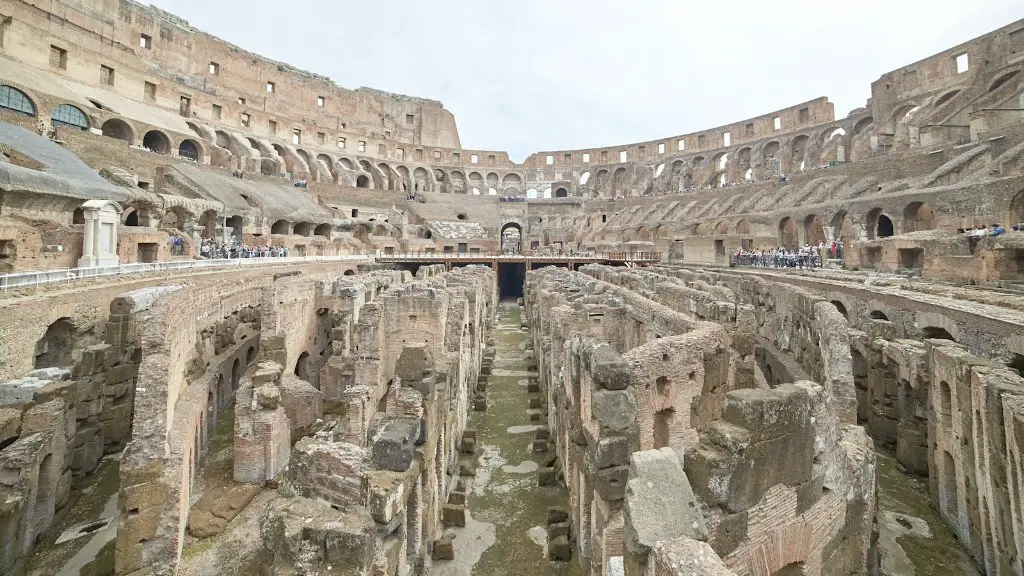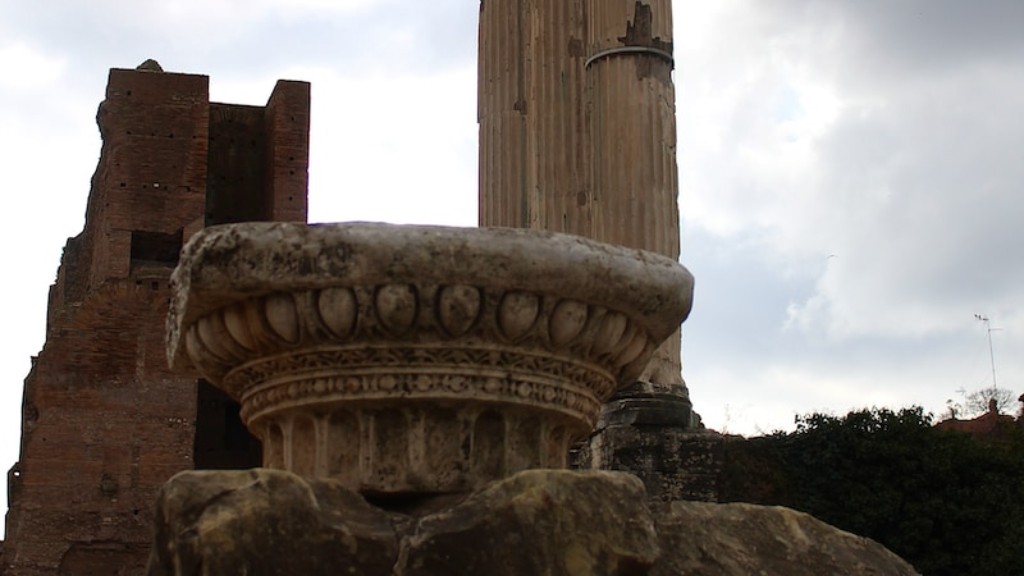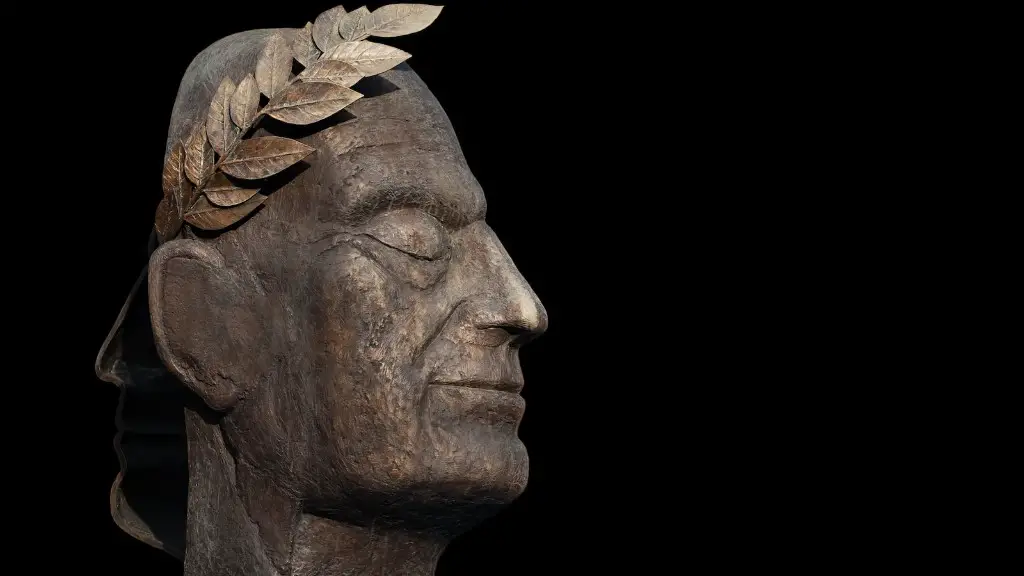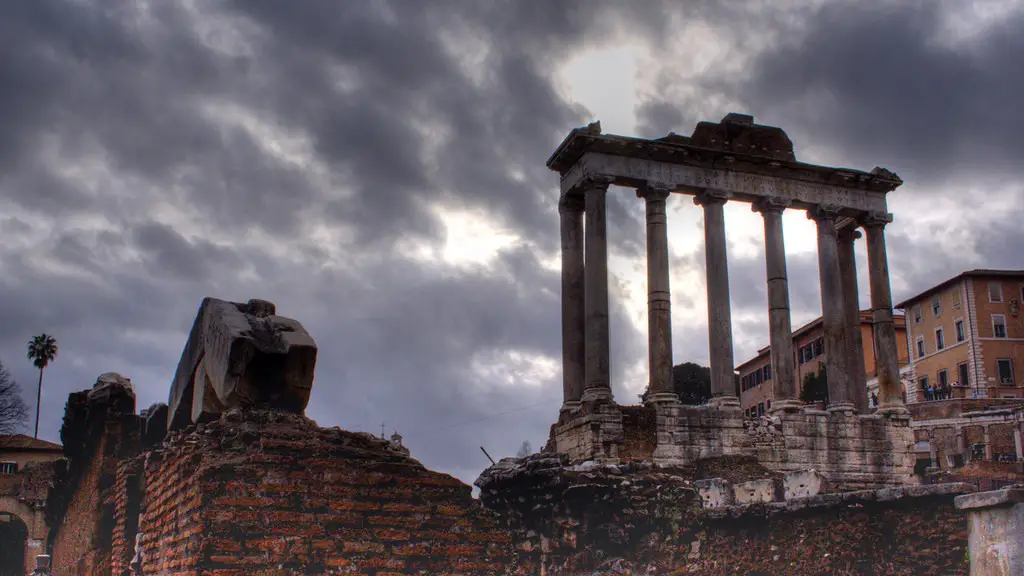In ancient Rome, farmers were called coloni, or “cultivators” in Latin. Coloni were one of the primary groups in society, providing food for the rest of the population, as well as raw materials for other producers. They worked the land for landowners, and had to pay them a percentage of their profits. As Roman agriculture evolved, smaller farmers began to buy or rent their own plots of land and were then free of the restrictions imposed by obligations to the landowners.
The majority of coloni were extremely poor, struggling to make ends meet in a system that was designed to favour the landowners. Many of them simply endured the hardships of farming, while others attempted to resist by forming associations and taking collective action. These actions did not always end favourably: in some cases, the landowners reacted with force, leading to famines and unrest.
In spite of this, the farmers of ancient Rome were an essential part of the success of the city’s economy. They contributed to the production of a wide range of crops, including grain, olives, wine, fruit, vegetables, and livestock. This helped to feed the city’s population, as well as to trade with neighbouring areas. Their expertise, hard work and dedication was crucial for Rome to become the great city it was.
From a modern perspective, the condition of the Roman farmers can be viewed as exploitation, but it was a widespread practice in ancient societies. Moreover, farming was one of the few professions that allowed for upward mobility, as some coloni not only managed to buy or rent their own land but were even able to own slaves. Despite their hardships, the life of the Roman farmer was considered an admirable and respectable profession.
Commercialization of Agriculture
As the Roman Empire continued to expand, the commercialization of agriculture grew rapidly. The lands of the empire were divided into small plots and coloni were already beginning to specialise in certain areas of production: wheat, wine, olives, etc. This system was largely dependent on the free market forces, which drove the prices up and down. However, the conditions of the farmers remained fairly static; their wages stayed low and the prices of land and equipment were out of their reach.
Commercialization also led to the development of new technologies, such as iron ploughs and better irrigation systems, which allowed for more efficient farming. At the same time, it created some additional risks for the coloni, as there was now a greater potential for bad harvests and other unforeseen disasters. Overall, the commercialization of agriculture improved the livelihoods of some Roman farmers but also increased their vulnerability.
The market system of the Roman Empire created an interdependence between the landowners and the coloni. The former relied on the latter to provide food and raw materials, and to make use of their technological innovations; while the latter needed the landowners to provide access to land and other resources. Despite the inherent inequality between them, both parties managed to make the best of the situation: one offering stability, and the other providing a means of survival.
Changing Economy
As the economy of ancient Rome began to shift, the role of coloni started to change as well. As other industries, such as mining and manufacturing, started to emerge, the position of the farmers became even more precarious. The production of agricultural items became less lucrative and the importance of the farmers decreased. This trend was further accelerated by the increasing popularity of grain imports from North Africa.
By the end of the fourth century AD, the importance of Roman farmers had been greatly diminished. Agriculture was no longer profitable, and the number of free farmers had decreased drastically. This led to a crisis in the countryside, as the majority of the population had to rely on the landowners for their livelihood. While some coloni managed to survive by becoming sharecroppers, many others were forced to leave the countryside and seek better opportunities in the cities.
Decline of the Farmers
The decline of the farmers in Roman society had drastic consequences for the empire. First, it led to the further commercialization of agriculture, as the landowners sought to increase their income by leasing their land to those who could pay higher rents. This process further weakened the rural population and increased the inequality between the wealthy landlords and the poor farmers.Second, it caused a significant food shortage, as the production of agricultural products was no longer sufficient to meet the demand of the population.
The decline of the farmers also caused a rapid change in the Roman political landscape. The landowners began to wield more power, thanks to their large estates and political influence. This led to a shift towards oligarchy, as the landed aristocracy dominated the political and economic affairs of the empire. As a result, the needs of the Roman farmers and small landowners were largely ignored by the ruling class.
Role in the Economy
By the beginning of the fifth century AD, the role of Roman farmers had become a marginal one. They were no longer the cornerstone of the empire’s economy, but instead a necessary evil for the maintenance of the status quo. This meant that their needs and interests were no longer a priority for the ruling class. Over time, the condition of the farmers deteriorated further and their role in the economy became even more peripheral.
The consequences of this decline in the importance of farmers in ancient Rome can still be felt today, as the majority of the population in developing countries is still dependent on agriculture for its livelihood. In many parts of the world, farmers are still struggling to make ends meet, which is a direct result of the exploitation of the Roman farmers by their landlords. It is a reminder of how, even in the most advanced civilizations of the ancient world, the life of a farmer was far from ideal.
Environmental Impact
The environmental impact of Roman agriculture is still being felt today. The technological innovations that were developed in the ancient world allowed for the expansion of large scale farming, which had a significant impact on the environment in the form of soil erosion and deforestation. Besides, large scale farming also caused the accumulation of salts in the soil as a result of over-irrigation. This led to the salinization of the soil, affecting food production and leading to the disappearance of previously fertile land.
The effects of over-exploitation of resources by the Roman farmers can also be seen today. The demand for food and raw materials was so great that it caused the deforestation of large areas of the Roman Empire. This not only adversely affected the environment, but also caused significant damage to the biodiversity of the region. Moreover, the consequences of soil erosion are still present in some areas of Italy, making it difficult for farmers to cultivate their lands effectively.
Conclusion
In ancient Rome, farmers were called coloni, or “cultivators” in Latin. Despite their hardships, the life of the Roman farmer was regarded with respect and admiration: they were an essential part of the success of the city’s economy. They provided food, raw materials, and agricultural innovations and their expertise, hard work and dedication were crucial for Rome to become the great city it was.
However, as the economy of ancient Rome changed, the role of the coloni began to diminish. They were eventually replaced by commercial production and the landowners began to have more power. This led to a shift towards oligarchy and the marginalization of the farmers and small landowners. Their exploitation and the consequences of their over-exploitation of resources are still evident today.




